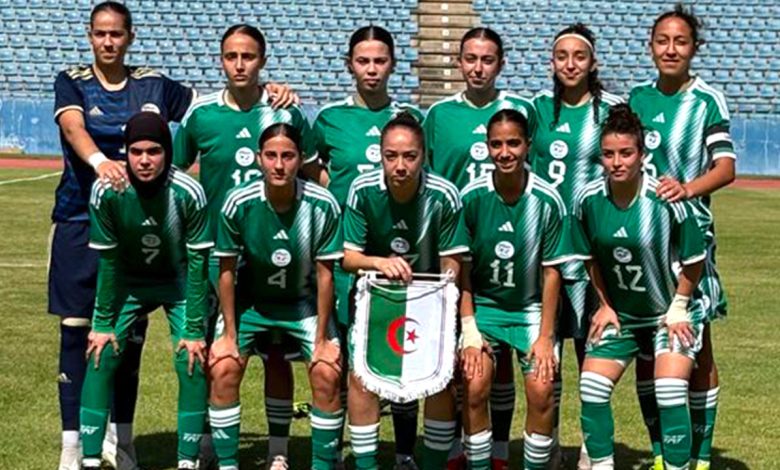Algeria’s hopes of reaching the 2025 FIFA U17 Women’s World Cup came to a definitive end on Friday evening, following a goalless draw against Nigeria at the Chahid Mustapha Tchaker Stadium in Blida.
The result, though hard-fought, could not overturn the 4–0 deficit from the first leg in Lagos, effectively sealing Algeria’s elimination from the final qualifying round of the continental competition.
Despite a resolute display in front of home supporters, the young Algerian side was unable to find a breakthrough against a well-organised Nigerian team that had already done the heavy lifting in the first encounter.
For coach Abdenour Mira and his players, the second-leg performance offered a degree of redemption, as they held their own tactically and showed greater discipline throughout the 90 minutes.
But the tie had already been shaped by the first leg’s comprehensive defeat, and the draw ultimately served as a result for pride rather than progression.
The encounter marked a sobering end to what had started as a promising campaign.
Algeria had navigated the earlier rounds with grit, edging past Tunisia with a 1–0 aggregate win and then dispatching Botswana 6–2 over two legs.
However, the step up in class against Nigeria proved a challenge too steep for a squad still developing cohesion and depth.
Despite some bright moments during the qualifying rounds, Friday’s outcome once again highlighted structural issues within Algerian women’s football.
The absence of a long-term development framework continues to hamper the nation’s ability to compete at the highest levels on the continent.
The pattern is familiar: technical staff are appointed close to tournaments, teams are assembled hastily with a mix of local league players and a handful of foreign-based additions, and training time remains limited—factors that undermine consistency and chemistry.
Miriam Assia Briki, who plays for Lyon and captained the side during the qualifiers, was among the few players with top-tier experience.
Yet even her leadership could not compensate for the lack of a solid national infrastructure.
National Technical Director Ali Moucer, in a press briefing held earlier this week at the Nelson Mandela Stadium, offered little indication of a forward-looking strategy for women’s football in Algeria.
His remarks pointed to a concerning void in planning and support at the institutional level.
The result in Blida may have ended Algeria’s 2025 World Cup journey, but for many observers, the deeper question remains: when will Algerian women’s football receive the systemic backing it needs to truly thrive?











